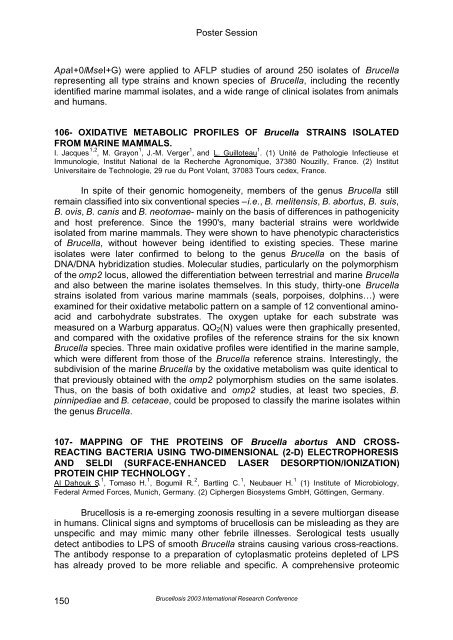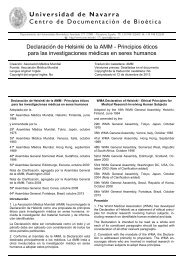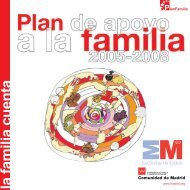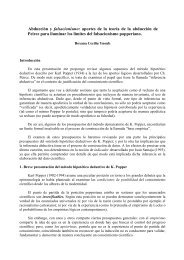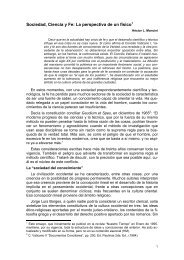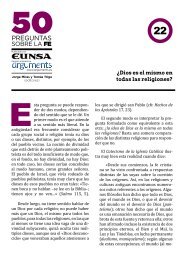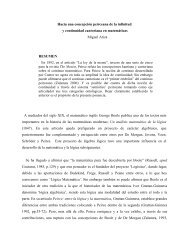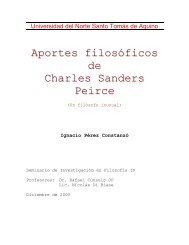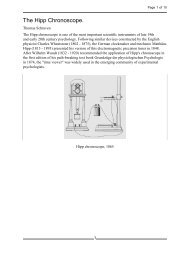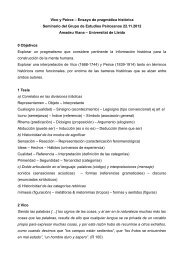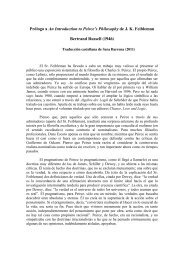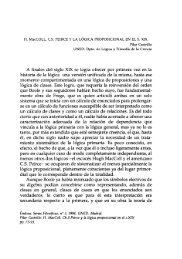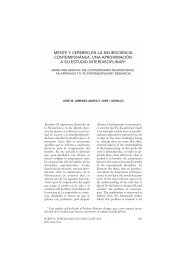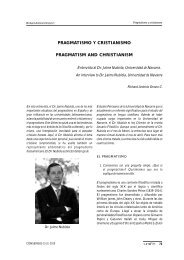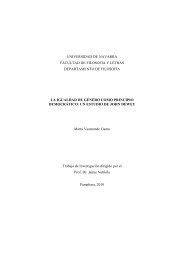Brucellosis 2003 proceedings - PHIDIAS
Brucellosis 2003 proceedings - PHIDIAS
Brucellosis 2003 proceedings - PHIDIAS
You also want an ePaper? Increase the reach of your titles
YUMPU automatically turns print PDFs into web optimized ePapers that Google loves.
Poster Session<br />
ApaI+0/MseI+G) were applied to AFLP studies of around 250 isolates of Brucella<br />
representing all type strains and known species of Brucella, including the recently<br />
identified marine mammal isolates, and a wide range of clinical isolates from animals<br />
and humans.<br />
106- OXIDATIVE METABOLIC PROFILES OF Brucella STRAINS ISOLATED<br />
FROM MARINE MAMMALS.<br />
I. Jacques 1,2 , M. Grayon 1 , J.-M. Verger 1 , and L. Guilloteau 1 . (1) Unité de Pathologie Infectieuse et<br />
Immunologie, Institut National de la Recherche Agronomique, 37380 Nouzilly, France. (2) Institut<br />
Universitaire de Technologie, 29 rue du Pont Volant, 37083 Tours cedex, France.<br />
In spite of their genomic homogeneity, members of the genus Brucella still<br />
remain classified into six conventional species –i.e., B. melitensis, B. abortus, B. suis,<br />
B. ovis, B. canis and B. neotomae- mainly on the basis of differences in pathogenicity<br />
and host preference. Since the 1990's, many bacterial strains were worldwide<br />
isolated from marine mammals. They were shown to have phenotypic characteristics<br />
of Brucella, without however being identified to existing species. These marine<br />
isolates were later confirmed to belong to the genus Brucella on the basis of<br />
DNA/DNA hybridization studies. Molecular studies, particularly on the polymorphism<br />
of the omp2 locus, allowed the differentiation between terrestrial and marine Brucella<br />
and also between the marine isolates themselves. In this study, thirty-one Brucella<br />
strains isolated from various marine mammals (seals, porpoises, dolphins…) were<br />
examined for their oxidative metabolic pattern on a sample of 12 conventional aminoacid<br />
and carbohydrate substrates. The oxygen uptake for each substrate was<br />
measured on a Warburg apparatus. QO 2 (N) values were then graphically presented,<br />
and compared with the oxidative profiles of the reference strains for the six known<br />
Brucella species. Three main oxidative profiles were identified in the marine sample,<br />
which were different from those of the Brucella reference strains. Interestingly, the<br />
subdivision of the marine Brucella by the oxidative metabolism was quite identical to<br />
that previously obtained with the omp2 polymorphism studies on the same isolates.<br />
Thus, on the basis of both oxidative and omp2 studies, at least two species, B.<br />
pinnipediae and B. cetaceae, could be proposed to classify the marine isolates within<br />
the genus Brucella.<br />
107- MAPPING OF THE PROTEINS OF Brucella abortus AND CROSS-<br />
REACTING BACTERIA USING TWO-DIMENSIONAL (2-D) ELECTROPHORESIS<br />
AND SELDI (SURFACE-ENHANCED LASER DESORPTION/IONIZATION)<br />
PROTEIN CHIP TECHNOLOGY .<br />
Al Dahouk S. 1 , Tomaso H. 1 , Bogumil R. 2 , Bartling C. 1 , Neubauer H. 1 (1) Institute of Microbiology,<br />
Federal Armed Forces, Munich, Germany. (2) Ciphergen Biosystems GmbH, Göttingen, Germany.<br />
<strong>Brucellosis</strong> is a re-emerging zoonosis resulting in a severe multiorgan disease<br />
in humans. Clinical signs and symptoms of brucellosis can be misleading as they are<br />
unspecific and may mimic many other febrile illnesses. Serological tests usually<br />
detect antibodies to LPS of smooth Brucella strains causing various cross-reactions.<br />
The antibody response to a preparation of cytoplasmatic proteins depleted of LPS<br />
has already proved to be more reliable and specific. A comprehensive proteomic<br />
150<br />
<strong>Brucellosis</strong> <strong>2003</strong> International Research Conference


